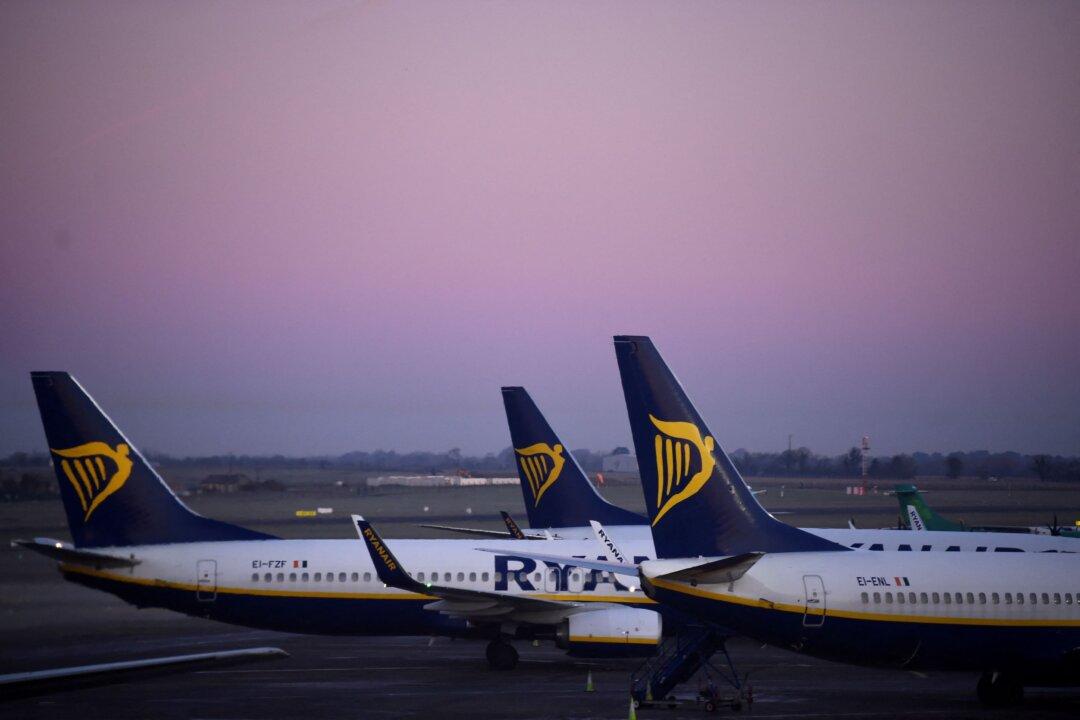DUBLIN—Ryanair said on Monday it was impossible to give detailed 2022 guidance beyond hoping for a return to “reasonable profitability” amid uncertainties over COVID-19 and the Ukraine war, knocking its shares despite a smaller annual loss.
Europe’s largest airline by passenger numbers also became the latest Boeing customer to criticise the planemaker. Chief Executive Michael O'Leary said its management needed to step up and deliver aircraft more quickly or make way for a new team.





